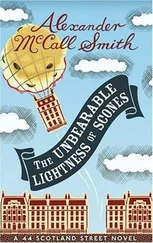‘Then you’ll be even happier,’ said Mr Woodhouse quickly. ‘But now, Miss Taylor, we must all have a cup of tea. I prefer camomile myself, but we can offer you ordinary tea if you prefer.’
‘Camomile has some very beneficial properties,’ said Miss Taylor.
Mr Woodhouse beamed with pleasure.
The briskness with which Miss Taylor moved into Hartfield surprised Mr Woodhouse – she arrived, with several suitcases of possessions, within a week of her interview – but it was as nothing to the speed with which she reorganised the lives of the two girls. In spite of her earlier enthusiasm for the appointment, Mrs Firhill took the view that she was moving too quickly: ‘Children don’t like change. They want things to remain the same – everybody knows that, except this woman, or so it seems.’ These were dark notes of caution, uttered with a toss of the head in the direction of the attic bedroom that Miss Taylor now occupied, but the housekeeper, too, was in for a surprise; neither Isabella nor Emma resisted Miss Taylor, and from the very beginning embraced the ways of their governess with enthusiasm. The new regime involved new and exotic academic subjects – French and handwriting were Miss Taylor’s intellectual priorities – as well as a programme of physical exercise and, most importantly, riotous, vaguely anarchic fun. A bolster bar was erected in the nursery, under which soft cushions were arranged. The girls were then invited to sit astride each end of this bar, armed with down-stuffed pillows. The game was to hit each other with these pillows until one of them was dislodged and fell on to a cushion or occasionally the bare floor below. In order to level the playing field that age tilted in Isabella’s favour, Emma was allowed to use two hands, while her sister was required to keep one behind her back. White feathers flew everywhere like snowflakes in a storm, and the shrieks of laughter penetrated even Mr Woodhouse’s study, where he sat engrossed in the latest crop of scientific papers in the dietary and nutritional journals to which he subscribed.
He was bemused by the changes that he saw about him, by the constant activity, by the new enthusiasms. He watched as scrapbooks filled with cuttings from magazines and papers; as cut-out dolls found their way on to every table; as rescued animals and birds took up residence in shoe-boxes lined up at the base of the warmth-dispensing Aga; as the current of life, which had grown so sluggish after the death of his wife, now began to course once more through the house. He welcomed all of this, even if it failed to relieve his own anxiety. It was all very well to be cheerful and optimistic when one was the girls’ age, but what if you were getting to the age – as he was – when life for the immune system became much more challenging? There were dangers all about, not least those identified by the medical statisticians, whose grim work it was to reveal just how likely it was that something could go wrong. And every time he contemplated the results of new research, there was the task of adjusting his regime to increase his level of exercise – or reduce it, depending on the balance of benefit between coronary health and wear and tear on the joints; to increase the number of supplements – or decrease it, depending on whether a novel product, attractive in itself, was likely to react badly with something that he was already taking. Such balancing was an almost full-time job, and left little time for other pursuits, such as the assessment of engineering risk – a task that he was well qualified to carry out but that could be inordinately demanding if one took it seriously, as Mr Woodhouse certainly did.
The purchase of a new lawnmower was an example of just how complicated this could be. Hartfield was surrounded by extensive lawns that gave way, to the east, to a large shrubbery, much loved by the girls for games of hide-and-seek. Those games themselves had been the cause of some anxiety, as it was always possible that hiding under a rhododendron bush might bring one into contact with spiders, for whom the shade and dryness of the sub-rhododendron environment might be irresistible. Spiders had to live somewhere, and under rhododendron bushes could be just the place for them.
Mr Woodhouse had heard people saying that there were no poisonous spiders in England. He knew this to be untrue, and had once or twice corrected those who made this false assertion. On one occasion he had gone to the length of ringing up during a local radio phone-in programme when a gardening expert had reassured a caller that there were no spiders to worry about in English gardens.
‘That’s unfortunately untrue,’ said Mr Woodhouse to the show’s host. ‘There are several species of spider in England that have a very painful bite. The raft spider, for instance, or the yard spider can both administer a toxic bite that will leave you in no doubt about having encountered something nasty.’
The host had listened with interest and then asked whether Mr Woodhouse had ever been bitten himself.
‘Not personally,’ came the answer.
‘Or known anybody who’s been bitten?’
‘Not exactly.’
‘Well then,’ said the host, ‘I don’t think we need worry the listeners too much about what they might bump into in their gardens, do you?’
‘Oh, I do,’ said Mr Woodhouse. ‘A false sense of security is a very dangerous thing, let me assure you.’
His concern over spiders was fuelled by the information the Sydney funnel-web spider, known to be one of the most dangerous spiders in the world, had taken up residence in the London Docks and was apparently thriving in its new habitat. That did not surprise Mr Woodhouse at all, who had long thought that the ease with which goods and people could now be transported about the world was an invitation to every dangerous species to take up residence in places where they had previously been unknown. It was inevitable, he thought, that at least some travellers from Australia would bring in their luggage spiders that had taken refuge there while their suitcases were being packed. If bedbugs could do it – and they did – then why should spiders resist the temptation? He shook his head sadly; the green and pleasant land of Blake’s imagining would not be green and pleasant for long at that rate. And if spiders could do it, what about sharks, who had to swim no more than a few extra nautical miles to arrive at British beaches? Or snakes, who had only to slither into a bunch of bananas in Central America to arrive within days on the tables of people thousands of miles away? And what if they met, en route, an attractive snake of the opposite sex? Before you knew it you would have a deadly fer-de-lance population comfortably established in Norfolk. That would give those complacent gardening experts on the radio something to think about.
‘Nonsense,’ snapped Miss Taylor when he raised the issue of spiders under rhododendron bushes and queried whether the girls might not be banned from going into the shrubbery to play their games. ‘We cannot wrap ourselves in cotton wool; just imagine what we would look like. Moreover, girls and spiders have co-existed for thousands of years, as is established, I would have thought, by the continued survival of the two species: the British girl and the British spider. Cadit quaestio .’
The expression, cadit quaestio – the question falls away – was one that Miss Taylor often used when she wished to put an end to a discussion. It was virtually unanswerable, as it is difficult to persist with a question that has been declared no longer to exist – anybody doing so seems so unreasonable – and it was now being used by the girls themselves, even by Emma. She had difficulty getting her tongue round the Latin but had nonetheless recently answered ‘cadit quaestio’ when he had asked her whether she had taken her daily fish-oil supplement.
Читать дальше
Конец ознакомительного отрывка
Купить книгу












